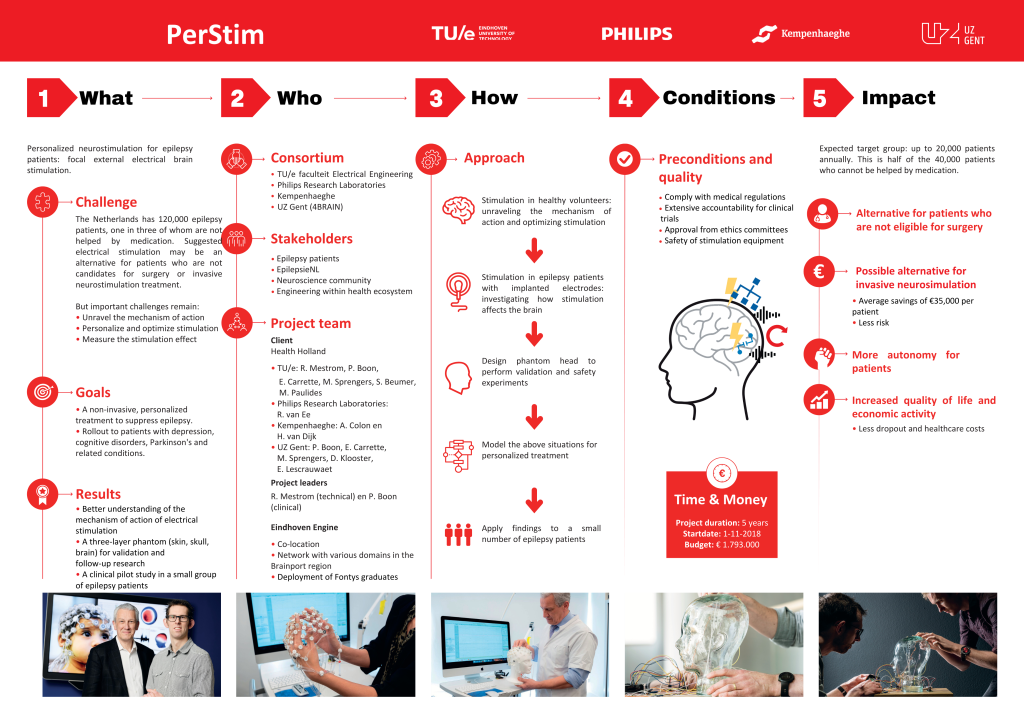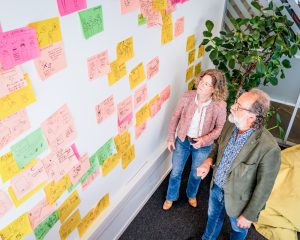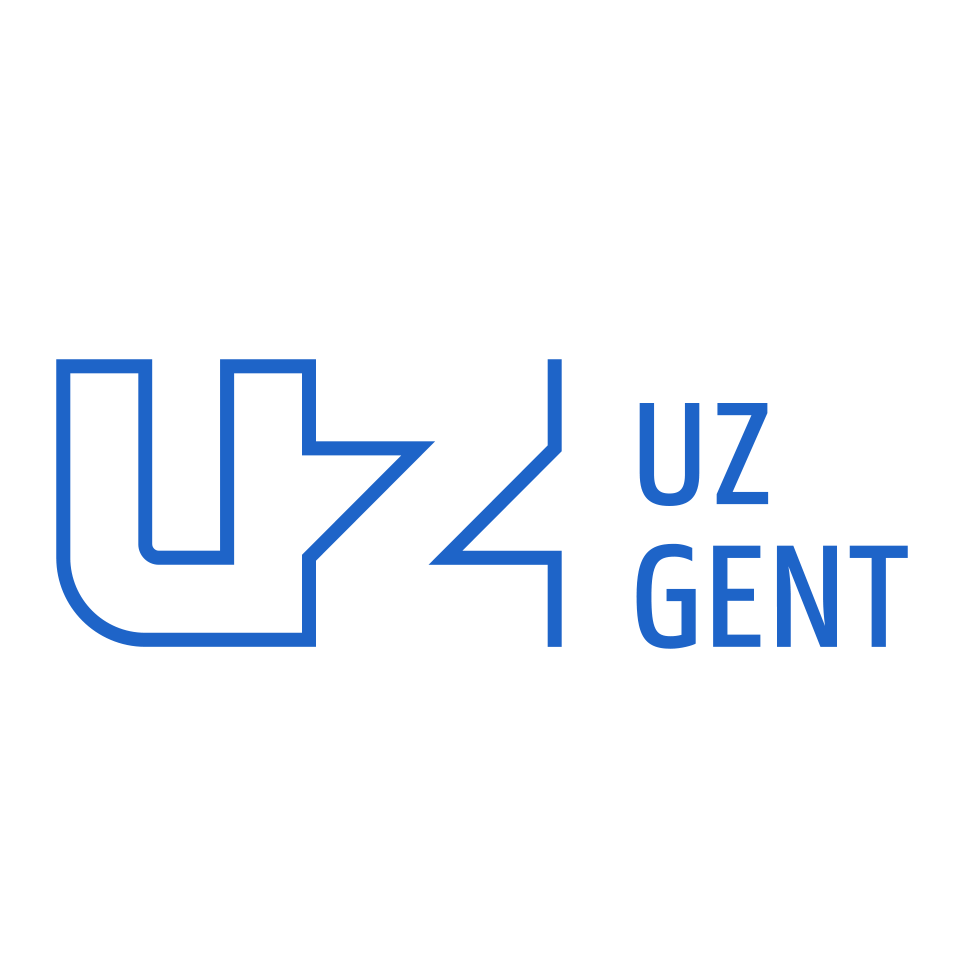Empowering Epilepsy Care: Decoding Transcranial Electric Stimulation
Hi all, my name is Steven Beumer (30 years old) and for the last four years I’ve been doing my PhD at the TU/e, specifically the Electromagnetics group of Electrical Engineering. I was born and raised in Geldrop, a small village next to Eindhoven, so studying at this university was almost a no-brainer.
My research is focused on using transcranial electric stimulation for epilepsy patients that cannot be treated using medicine or surgery and is part of the PerStim project. This project was conceived from the wish to be able to reduce the treatment gap in epilepsy and thus lower the burden of this disease on the patients and society.
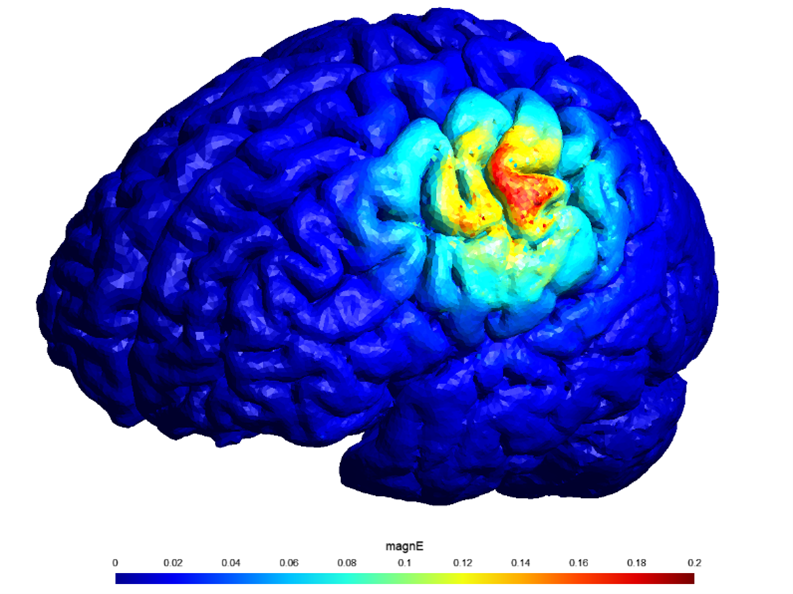
Electrical stimulation is simple, but very complex
Together with the Ghent University Hospital, Kempenhaeghe and Philips we started to research the use of electrical stimulation for epilepsy treatments. Through extensive literature studies, we found that the working mechanism of this technology is still poorly understood. Thus, we set out to answer a fundamental question using clinical studies: “Are we stimulating the brain with currents that go straight through the skull, or is it taking a more complicated route like the facial nerves?”
This method holds great promise for the future because of its affordability, simplicity, and potential for home use, which could ultimately reduce the need for frequent hospital visits.
To support these studies, I was tasked with making patient models, optimizing the electrode positions as well as analyzing the data. Together with students from Fontys and the TU/e, we built a full workflow to do this in a very quick and efficient manner. Eindhoven Engine enabled us to cooperate with the students from the Fontys. Their working mentality and different way of approaching problems were fundamental to significant parts of this work. Our clinical studies are still running, but preliminary results have shown that the answer to the abovementioned question might be that the stimulation works via both the direct and the indirect paths.
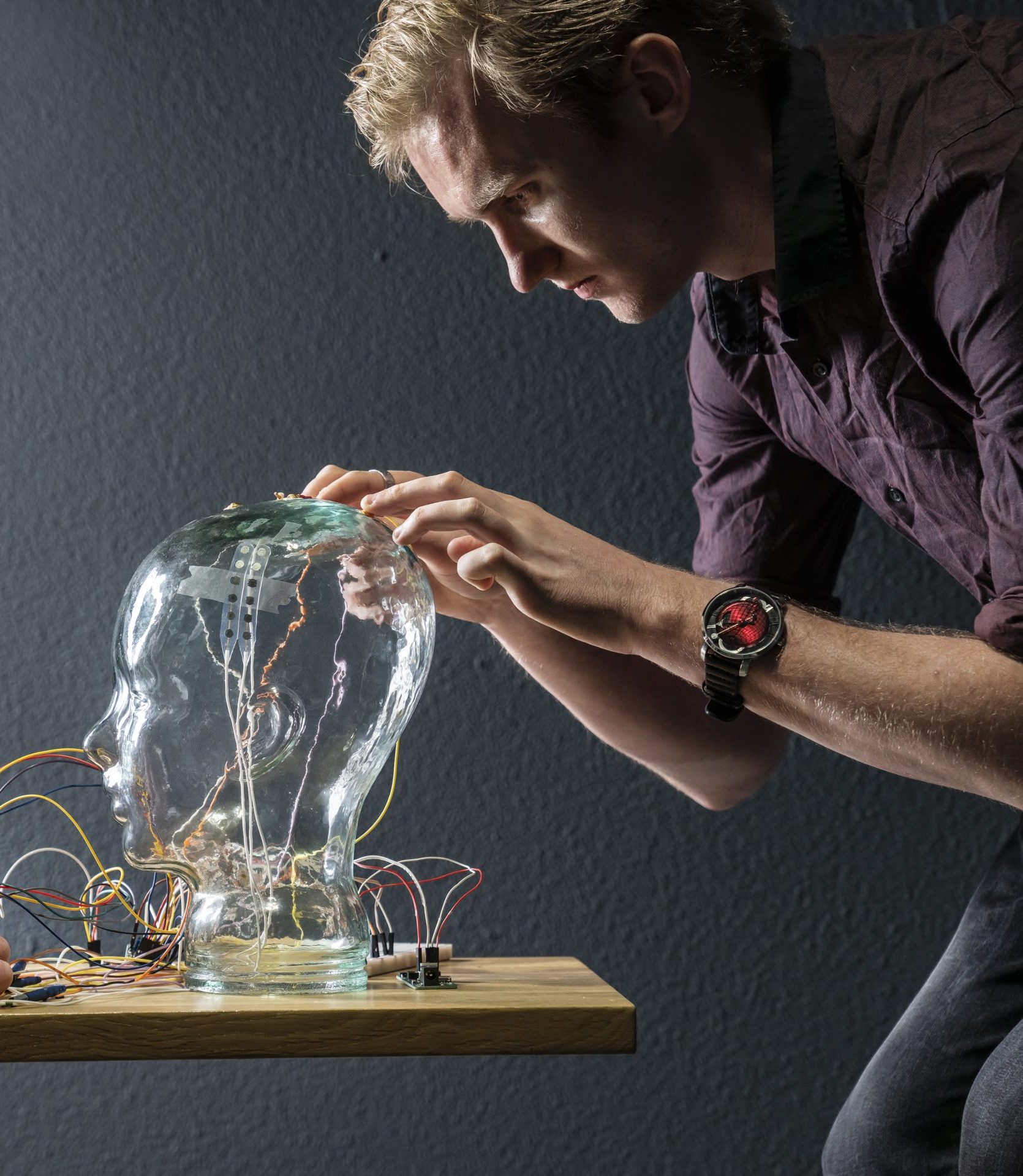
Looking into the future
Even though the use of transcranial electric stimulation is more complex than initially assumed, we have just started to unravel the actual working mechanism and I wholeheartedly believe that as we gain a deeper understanding, we can improve the methods and their efficacy. This method holds great promise for the future because of its affordability, simplicity, and potential for home use, which could ultimately reduce the need for frequent hospital visits.
My time at the university is running out, but I am still as fascinated by the world of brain stimulation as I was when starting this project and I’ll keep working in this field to improve the understanding of these techniques and unlock their potential for patients.
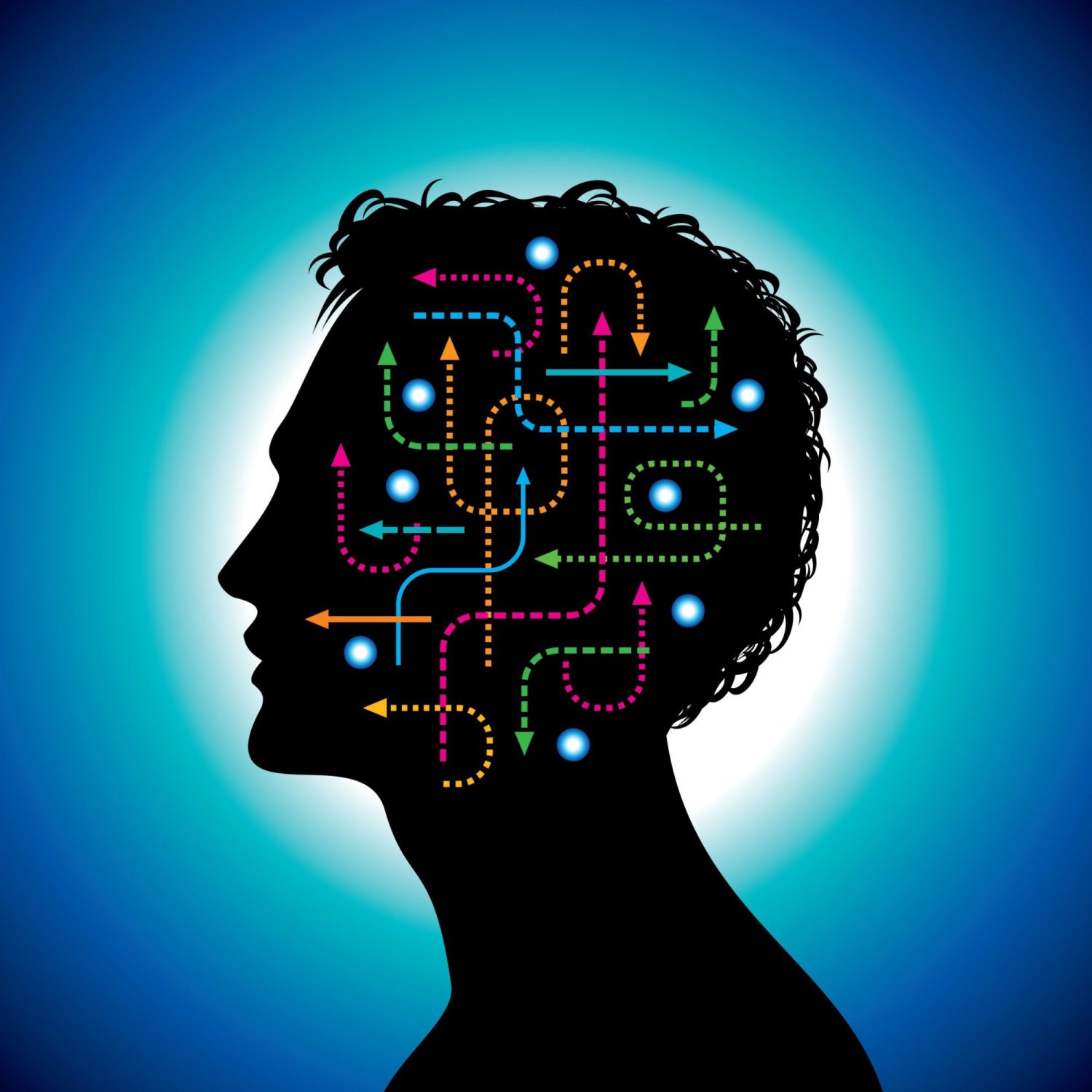
A non-invasive approach to treatment
Using EEG- and MR-imaging based transcranial electrical stimulation, the Eindhoven Engine project PerStim (Personalized neurostimulation) investigates how treatments for patients with refractory focal epilepsy and prevalent co-morbid disorders can be personalized effectively. Via transcutaneous direct/alternating current stimulation (tDCS/tACS), the overall aim is to develop personalized, non-invasive neurostimulation protocols to provide (non-)refractory epilepsy patients with a better quality of life. This non-invasive approach to treatment is a method whereby an operation is not needed and treatment outside the body, as it were, is made possible.
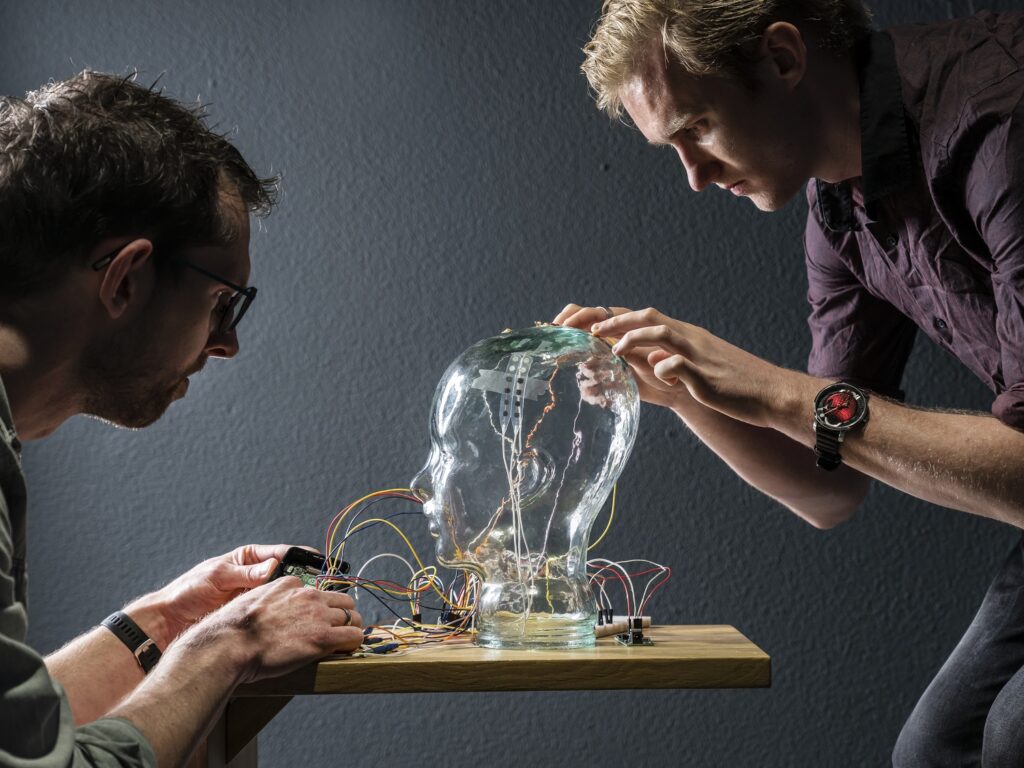
Tight technical-clinical cooperation
To realize these ambitions, TU/e has teamed up with Philips Electronics Nederland B.V. and Kempenhaeghe, the Academic Center for Epileptology. UZ Ghent is also involved through the part-time neuromodulation chair of Professor Paul Boon. PPP Allowance co-funding has been made available to Epilepsiefonds by Health~Holland’s Top Sector Life Sciences & Health in order to stimulate public-private partnerships. Project partner meetings take place approximately once per month, with Fontys and TU/e student projects expected to be held in Eindhoven Engine’s building Disruptor. Such close collaboration and the integration of their results in clinical trials will allow for direct testing of PerStim’s neurostimulation hypothesis.
First clinical study
With the support of Eindhoven Engine, PerStim successfully completed the first clinical study and developed a suitable skull model to commence the second clinical study. The project also integrated two Fontys students into the team, whose contributions will be included in a PhD thesis. Additionally, a spin-off project was launched under PerStim to extend the non-invasive neurostimulation approach to transcranial focused ultrasound stimulation. This initiative was further bolstered by recruiting an additional postdoc, in collaboration with the Donders Institute in Nijmegen.
Videos
In the Netherlands one third of the epilepsy patients (100.000+) keep having seizures; even after trying several medicines. The next treatment will be surgery. But there is a promising alternative treatment: neurostimulation.
Rob Mestrom – Project Leader
In this project PerStim Rob Mestrom and his team do research in personalizing neurostimulation for epileptic patients. He does this with a tight technical clinical cooperation with partners TU/e, Philips Electronics, Kempenhaeghe, UZ Ghent, and Epilepsiefonds.
Steven Beumer – PhD candidate
Steven Beumer uses brain images and brain recordings to try to optimize stimulation protocol for patients. Together with Fontys graduation students, they are working on artificially skull that mimics the real skull and its electrical properties.
Infographic
